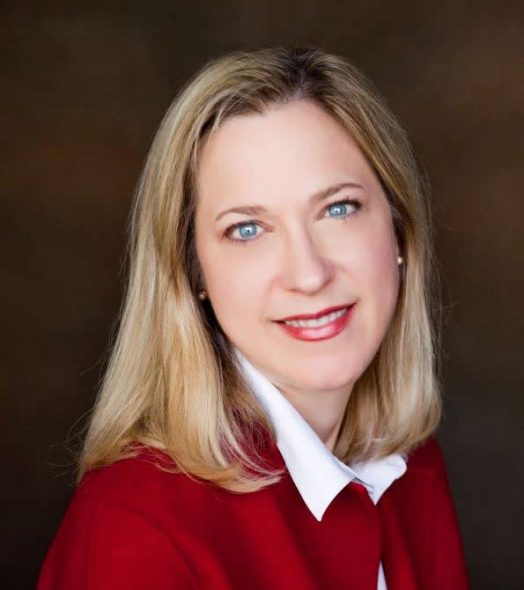State Energy Fund Diverted to Other Uses
$8 million goes for internet access, much of it to three private companies.
Wisconsin ranks 49th in the country for internet speed and gets low marks for citizens’ access to broadband internet. The situation is hurting the state’s economy, experts say, and few would argue against investments to improve this situation.
But clean energy advocates are upset that state regulators want to use funds from the Focus on Energy program — meant for energy efficiency and renewables — to address the broadband crisis.
During a Dec. 1 hearing, the state Public Service Commission decided on plans that emphasize broadband access as a path to energy efficiency, dedicating more than $8 million from Focus on Energy funds toward internet access and giving internet service provider (ISP) companies a leadership role in the program.
Efficiency advocates say that while the internet clearly has a role in efficiency programs and devices, there are much more cost-effective and targeted options than the latest proposal, which they see as a diversion of badly needed dollars.
Advocates have been concerned the state would take this route since at least October, when the issue was heatedly discussed at an Oct. 20 Public Service Commission hearing. There, chair Ellen Nowak assured upset citizens that the commission was not planning to use renewable and efficiency funds to increase broadband access. “This is not about spending Focus funds on broadband infrastructure,” she said at that hearing.
But commissioners decided last week to do just that, as advocates including Clean Wisconsin and RePower Madison see it. A final written order still needs to be drafted by staff and then approved by commissioners. But public comment is closed, and the order now can only be challenged through circuit court.
Subsidizing ISPs?
The commission plan calls for distributing 97,000 energy efficiency kits that include LED light bulbs, weatherization spray foam and other efficiency items, plus a voucher for $50 towards new or upgraded internet service. That equates to a total of up to $4.8 million worth of vouchers. It appears ISPs will be the ones tasked with advertising and distributing the kits.
“Basically it seems like a bunch of money is being given to the internet companies to help them advertise their services, so they can say, ‘Hey, want to upgrade your service? You’ll get $50 off.’ And now the internet company doesn’t have to pay for that,” said Mitch Brey, an organizer for Repower Madison. “It’s a huge amount of money being handed over from electric customers to internet companies.”
Keith Reopelle, senior policy director of Clean Wisconsin, said that it was highly unusual for the commission to assign a role for specific businesses, since that’s usually the responsibility of CB&I, the company that administers Focus on Energy.
It appears the companies that would benefit from the Focus on Energy programs are Centurytel, Frontier and AT&T, which serve the rural areas targeted by the commission.
The commission also decided to grant about $4 million specifically to upgrade ISPs’ infrastructure. It is not clear exactly what the funds will be used for. Advocates note that improving the companies’ own energy efficiency would fall within the scope of Focus on Energy’s purpose, but they worry the funds could also be used for other infrastructure needs.
At the Dec. 1 hearing, Nowak addressed these concerns. “We are not talking about funding the fiber in the ground,” she said. “This is about the nexus between broadband and energy, this is about realizing the increased investment that broadband spurs in [energy efficiency] devices … improving communications between a utility and its customers.”
“It’s the Focus on Energy program, not the Focus on Broadband program,” said Olsen, noting that the commission probably felt under pressure from widespread media coverage of Wisconsin’s broadband failings and pressure from citizen groups on the issue.
Telecommunications expert Barry Orton, a University of Wisconsin professor emeritus, said he was not at all surprised to hear that the commissioners were — as critics see it — channeling public funds to private companies.
“The Public Service Commission has become more and more captive of the industries it’s supposed to regulate,” he said. “I have watched the Public Service Commission take broadband money [from federal and other sources] and use it to beef up the capital expense budget of existing telecom providers, without real oversight that connects those dollars to expansion of the broadband map. They’re essentially giving it to the providers and saying, ‘Tell us you’re doing better.’ Where the money goes and how it’s used is more a leap of faith than anything else.”
Orton noted that neither the vouchers nor the infrastructure funds mean the actual quality of internet service will improve.
“It doesn’t mean things will upload any faster,” he said. “You could be subsidizing the same inferior service.”
Rural focus
The commission has said the funds for broadband will go specifically to rural areas designated by a national study as being underserved, which are defined as being served by fewer than two broadband providers.
CB&I raised concerns about this approach in a memo filed with the commission. CB&I noted that there are tens of thousands of rural Wisconsin residents who do not live in areas identified as underserved, and these often elderly and low-income people are being left out of the program even though they could benefit from energy efficiency.
Olsen also finds this troubling. “The pretense for the broadband initiative is the disparity between rural and other areas,” he said. “But this program will reach only a small fraction of the rural areas, and the spending will likely aggravate disparities and create disparities between rural areas.”
“What’s disturbing is Focus on Energy programs typically have been available for anyone who wants to sign up for them, but these programs are being designed for a very specific audience and ISPs,” added Brey. “It seems basically like a direct handout.”
During the Dec. 1 hearing, Nowak described the focus on specific rural areas as a matter of righting “inequity” that had previously existed in the Focus on Energy programs. She described the marriage of energy efficiency and broadband programs as a “win-win.”
“This isn’t a subsidy, it’s an incentive to get customers to use the internet for energy efficiency programs or devices,” Nowak said.
Tense proceedings
There appears to be significant tension between the commission and CB&I over the role of broadband in the Focus programs. In memos, CB&I raised various concerns and proposed alterations to the commission’s requests related to broadband. Along with its concerns about how target rural areas are defined, CB&I questioned whether the broadband investments would fulfill the legal requirements that Focus on Energy programs meet a certain cost-benefit ratio.
During the Dec. 1 hearing, Nowak noted CB&I’s concern and said that each Focus on Energy program does not need to pass the cost-benefit test, as long as the portfolio as a whole does so.
CB&I also raised concerns about whether the ISPs would do a good job of distributing the energy efficiency kits, since ISP staff wouldn’t necessarily be prepared to answer customers’ general questions about energy efficiency.
“I question whether or not this contractor is willing to administer a program that they no longer agree with,” he said. “Some of the terms, some of the tone in that [CB&I’s] memo raise those concerns for me … Hopefully they will do as asked to do … but I’ll go in with a closer eye and higher level of skepticism as to whether they’ll be willing to do it.”
CB&I has gained high marks for its administration of Focus On Energy, which was launched in 2000 and has meant significant energy and cost savings, according to independent analyses.
At a Nov. 23 hearing, the commission made the case for developing “partnerships” with internet service providers, and also criticized the concerns CB&I had raised.
“Commission staff’s research indicates that technology has changed considerably since the Focus program was implemented, making the internet a key forum for customers to equally access Focus benefits, participate in markets for energy efficiency, and increase rural economic development, all of which are statutory goals of the Focus program,” says the commission memo.
“CB&I’s suggestion that inclusion of a subscription rebate is not ‘within legislative guidelines’ misconstrues the law and ignores the important role broadband will play with the implementation of energy efficiency measures.”
But clean energy advocates agree with CB&I and argue that the broadband initiatives could be breaking the laws that govern Focus on Energy.
Reopelle noted that a law passed in 2005 redefining the program —Act 141 — was meant specifically to prevent Focus on Energy funds from being used for other purposes. The law was passed after the funds were used to bolster the state’s general budget.
“It’s concerning because it’s clearly using funding for something other than energy efficiency or renewable energy, which is the explicit purpose of the Focus on Energy program,” Reopelle said. “This was something that Act 141 until now really effectively prevented, and that legislation was passed by an overwhelmingly bipartisan majority.”
“We shouldn’t use energy efficiency dollars for internet service,” he concluded. “That will sacrifice energy savings.”
This story was originally published by Midwest Energy News.


















Huh, I guess the internet companies were lobbying the right people. I see that residents & small businesses weren’t:
https://focusonenergy.com/business/renewable-energy
“Renewable Energy Loans
As of October 20th, 2016, the Wisconsin Public Service Commission has discontinued the Renewable Energy Revolving Loan Fund. Focus on Energy is no longer accepting new loan applications.”
This is what you voted for Wisconsin.